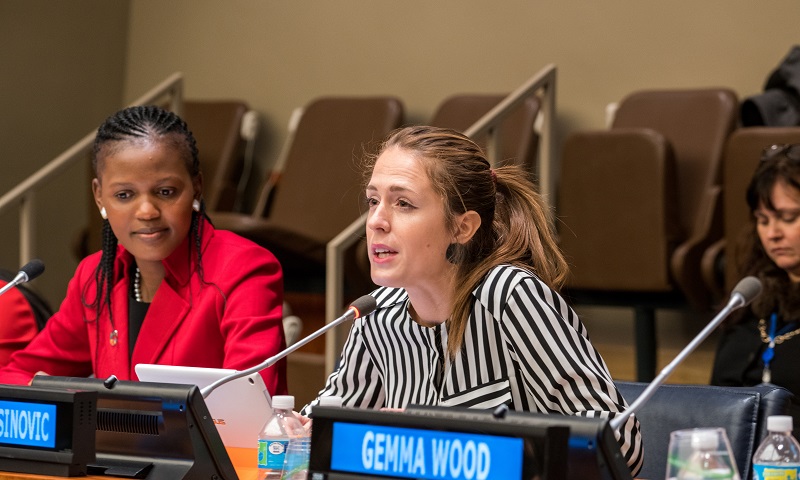
By 2030, the target date for the Sustainable Development Goals (SDGs), the number of youth (aged 15-24 years) globally is projected to reach nearly 1.3 billion. While this trend stabilized or reversed in some regions, Africa’s youth population is expected to continue to grow throughout the remainder of the 21st century and to more than double from current levels by 2055.
As the international community is charting its ways for making the SDGs a reality, the World Programme of Action for Youth is all the more relevant and is of important significance for informing national pro-youth policies within the framework of the 2030 development agenda.
This High-Level panel discussion took place at the United Nations Headquarters in New York on 2 February 2017, during the course of the 55th session of its Commission on Social Development. The Commission, whose focus theme this year is “Strategies for eradicating poverty to achieve sustainable development for all”, was chaired by Mr. Philipp Charwath of Austria.
After Mr. Charwath’s opening remarks, the six member panel, moderated by Ms. Vivian Onano, the Partnerships Manager at SEED Project, included H. E. Ms. Sophie Karmasin, Austrian Federal Minister of Families and Youth; Mr. Santiago Soto, National Director of the National Institute of Youth, Ministry of Social Development, Urugua; Ms. Gemma Wood, Youth Development Consultant; Ms. Nada Al‐Nashif, Assistant Director‐General for Social and Human Sciences, UNESCO; Mr. Ahmad Alhendawi, Secretary‐General's Envoy on Youth and Ms. Nevena Vukašinović, Secretary General at ENGSO Youth in Serbia.
While providing a platform to engage national and international stakeholders, as well as the civil society, in an open discussion and exchanges of experiences and ideas, the forum offered an invaluable opportunity to understand the manifestations of poverty as affects the populations who experienced it.
It thus enabled the Commission to explore youth development strategies from the perspectives of the country experiences and good practices of the past two decades since the adoption of the World Programme of Action for Youth. The panellists further highlight the need for an integrated and coordinated approach to the design, implementation and monitoring of national evidence-based youth policies for which the need for adequate data was also underscored.
To learn more about our work with youth visit social.un.org/youth
 Welcome to the United Nations
Welcome to the United Nations